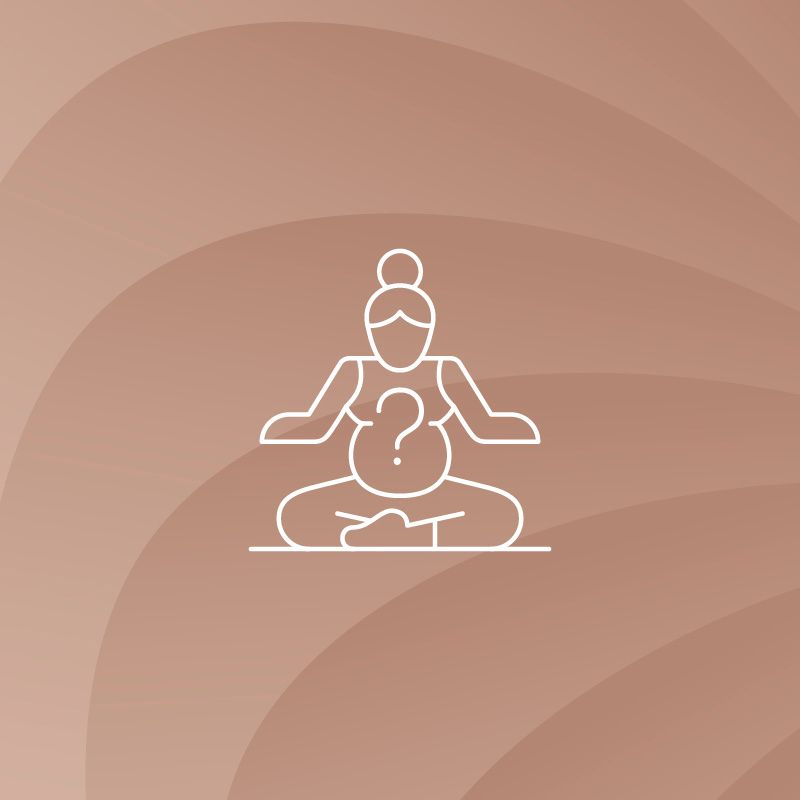
Pregnancy
Prenatal care includes a range of examinations, measures and consultations designed to ensure the health of mother and child during pregnancy.
Pregnancy care
Pregnancy care comprises a range of examinations, measures and consultations designed to ensure the health of mother and child during pregnancy. Regular and comprehensive prenatal care is crucial in order to detect possible risks at an early stage, monitor the baby's development and provide the expectant mother with the best possible support.
Antenatal care is an important part of prenatal care and offers expectant mothers the opportunity to prepare themselves optimally for the birth and the time afterwards. Regular check-ups, discussions with specialists and midwives as well as information on healthy nutrition and lifestyle can minimize potential risks and ensure the best possible care.
During pregnancy, check-ups are carried out at regular intervals to monitor the health of mother and child. Among other things, blood pressure, weight gain, blood and urine values and the development of the baby in the womb are checked. In addition, important topics such as vitamin and mineral supply, pregnancy complaints, birth preparation and much more are discussed.
Doctors
Our team of experienced specialists provides expectant mothers with sensitive and competent support in order to offer them the best possible pregnancy care. We attach great importance to taking individual needs and wishes into account and building up a trusting relationship so that every expectant mother feels that she is in good hands. We are happy to provide you with comprehensive information and advice. Together we can ensure that your pregnancy is a healthy and joyful experience that you can look back on with fond memories.
Prenatal diagnostics
Prenatal diagnostics offer expectant parents the opportunity to check the health of their unborn baby at an early stage and to identify any risks in good time. Through targeted examinations and tests, congenital diseases, genetic anomalies and developmental disorders can be diagnosed at an early stage, giving parents peace of mind and the opportunity to prepare for the birth in the best possible way.
In our practice, we use a variety of prenatal diagnostic methods, including ultrasound examinations, blood tests and genetic tests. These methods enable us to identify potential risks at an early stage and take appropriate measures to provide the best possible care for mother and child.
We are at your side throughout the entire process of prenatal diagnostics to provide you with sensitive support and guidance. We attach great importance to taking your needs and questions seriously and offering you a trusting environment in which you feel safe and in good hands.
If you would like more information on prenatal diagnostics or are interested in our prenatal medical services, please do not hesitate to contact us. We will be happy to answer your questions and provide you with all the information you need.
Ultrasound examination
Thanks to the invention of ultrasound, we have a great opportunity to examine the unborn child. Parents usually enjoy the ultrasound examination and can better visualize the development and make contact with the unborn child. Our team takes its time during the examinations and, if the baby's position allows, we try to produce beautiful 3D images. Occasionally, however, abnormalities may be detected that require further clarification or consultation. Two ultrasound examinations are covered by health insurance: One in early pregnancy to measure the nuchal fold and one around the fifth month of pregnancy to examine the baby's organs. However, further ultrasound examinations may be necessary depending on the course of the pregnancy. For example, to monitor the baby's growth and the amount of amniotic fluid.
First trimester test
This test is carried out towards the end of the first trimester, around the 12th week of pregnancy, and is covered by health insurance. It involves measuring the baby's nuchal fold using ultrasound. At the request of the parents-to-be, a blood test can be carried out on the mother in addition to the ultrasound to determine two hormones. This allows the statistical risk of trisomy 21, also known as Down's syndrome, as well as trisomy 13 and 18 to be calculated. If the risk is greater than 1:1000, further tests are considered.
Non-invasive prenatal testing (NIPT)
Non-invasive prenatal testing (NIPT) is a modern genetic test. A blood sample is taken from the pregnant woman to analyze the genetic material of the unborn child. This test method enables the early detection of genetic anomalies such as trisomy 21, trisomy 18 and trisomy 13 with a high degree of reliability. In contrast to invasive tests such as amniocentesis or chorionic villus sampling, NIPT poses no risk to the unborn child. The blood sample can be taken from the 10th week of pregnancy and the test result is available after approx. 2 weeks. This test is covered by health insurance if the first trimester test indicates an increased risk. Otherwise it costs around CHF 500.
Invasive prenatal diagnostics
Invasive prenatal diagnostics includes chorionic villus sampling and amniocentesis. This involves removing fetal cells from the amniotic cavity through a fine needle, cultivating them and examining them for various diseases. Although the examination is generally not very painful for the mother, it carries a small risk of miscarriage and should therefore be carefully considered.
Online appointment booking
Would you like an appointment? It's quick and easy with our online booking tool - we look forward to hearing from you!
Find out more - for a healthy pregnancy
Here you will find further information on preventive care, examinations and important topics relating to pregnancy.

Pregnancy

Behavioral recommendations


